When buying eggs, you may find yourself overwhelmed with choices. The various labels on egg cartons may look appealing, but do they truly reflect the welfare of the laying hens? Here’s how you can make informed choices to choose cage-free eggs and ensure higher welfare for laying hens.
Types of egg production
In Canada, there are five types of egg production based on the housing systems for laying hens.
Conventional
Conventional cages provide the lowest space per bird of all housing systems. Small groups of hens are raised in wire cages where they are provided with feed and water but no enrichments. Conventional cages allow for high egg production with low labour input, making them the most inexpensive eggs on grocery store shelves. However, this comes at a cost to the hens’ welfare. Their movement is severely limited, and they cannot express their natural behaviours, such as perching, scratching, dustbathing and nesting, causing frustration. These eggs usually have no specific label about hen housing on the carton.
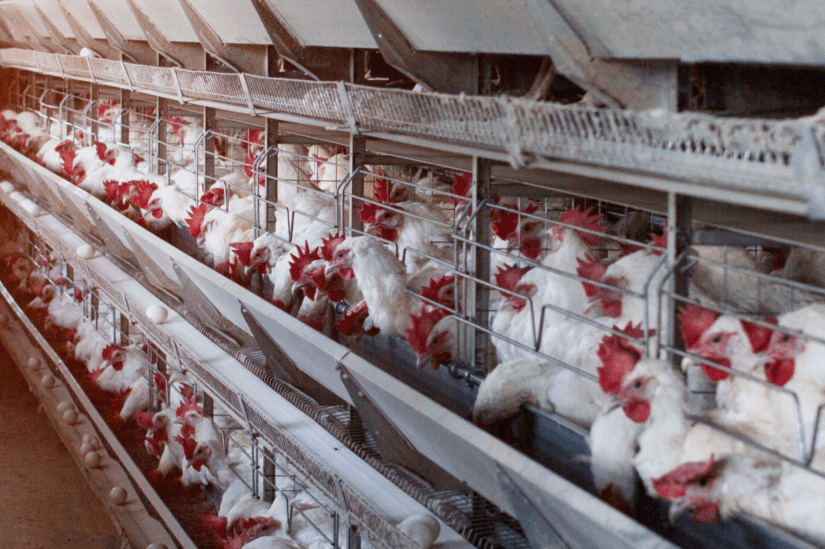
Enriched
Enriched cages provide more space per bird, and cages are equipped with some features to make the hens more comfortable. Larger groups of hens are raised in wire cages with nest boxes, perches and scratch pads to peck at. However, the space is still restrictive, and the hens cannot fully express their natural behaviours and benefit from these enrichments.
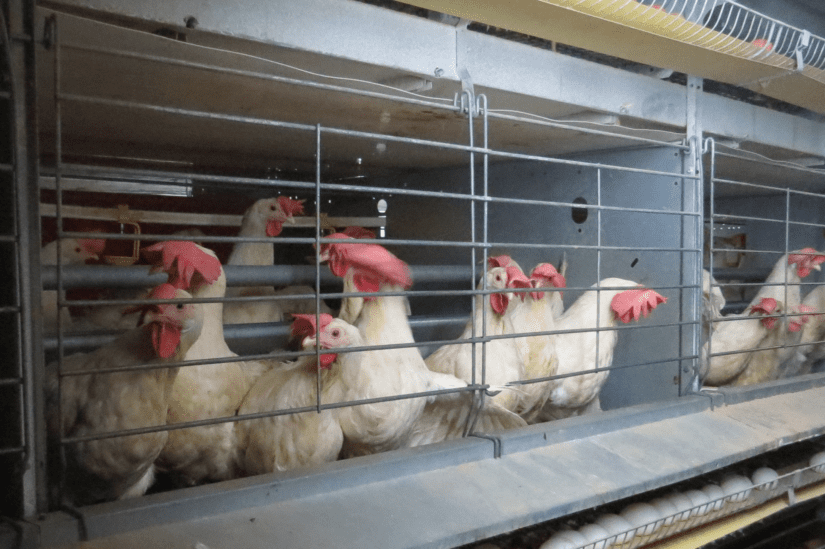
Cage-free is a term that can be applied to the remaining three production types: free-run, free-range and organic. The BC SPCA recommends choosing cage-free eggs.
Free-run
In a free-run housing system, hens are not confined in cages. They are loose in the barn and can roam where they please. Enrichments, including perches and litter, are provided to encourage natural behaviours of perching, scratching, and dustbathing. They’re also provided with nest areas where they lay their eggs.
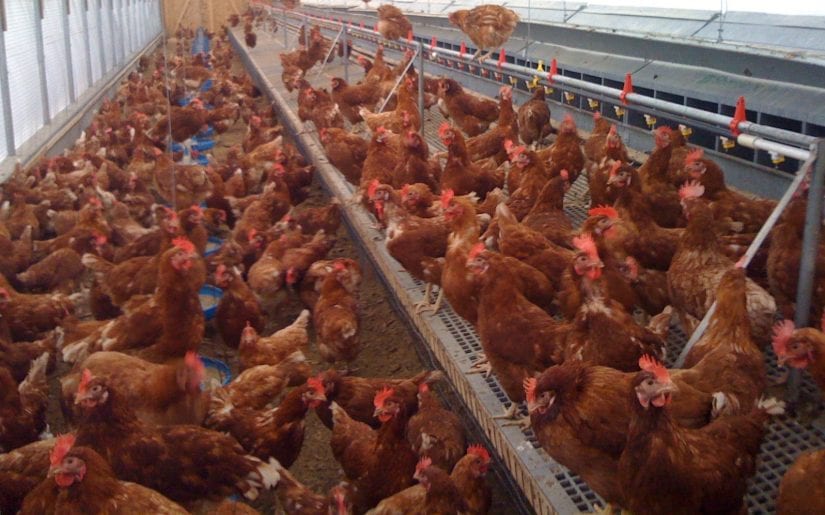
Free-range
Free-range eggs come from hens raised in barns, which are very similar to free-run housing, with one significant difference – the hens are also allowed outdoor access during the day when weather permits. Restricting birds from using the outdoor range may be necessary when birds are at risk for exposure to disease or other threats to their health and welfare.
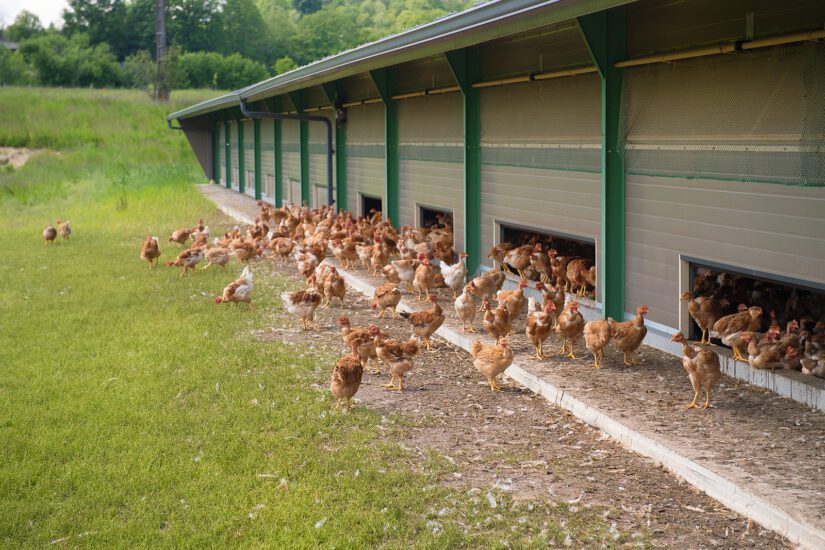
Organic
Organic eggs are produced in barns that are similar to free-range barns. Hens are given more space both indoors and outdoors as compared to free-range barns, are fed only certified organic feed, and are never given antibiotics – unless hens require treatment when sick, in which case they’ll lose their “organic” designation and become “free-range” hens if given antibiotic medication. An independent auditor inspects organic farms to ensure the standards of organic production are met.
Support higher welfare for laying hens
To better support laying hen welfare, choose cage-free eggs.
Look for free-run, free-range or organic eggs
These labels mean that the laying hens are not raised in cages, and have more space and opportunities to express their natural behaviours.
Better yet, look for animal welfare-certified eggs
Certified eggs are the best option for ensuring the highest possible hen welfare on farms. The animal welfare certification programs listed below certify cage-free farms that follow high standards of care. Independent inspections are routinely conducted to verify that standards are being met on the farm.
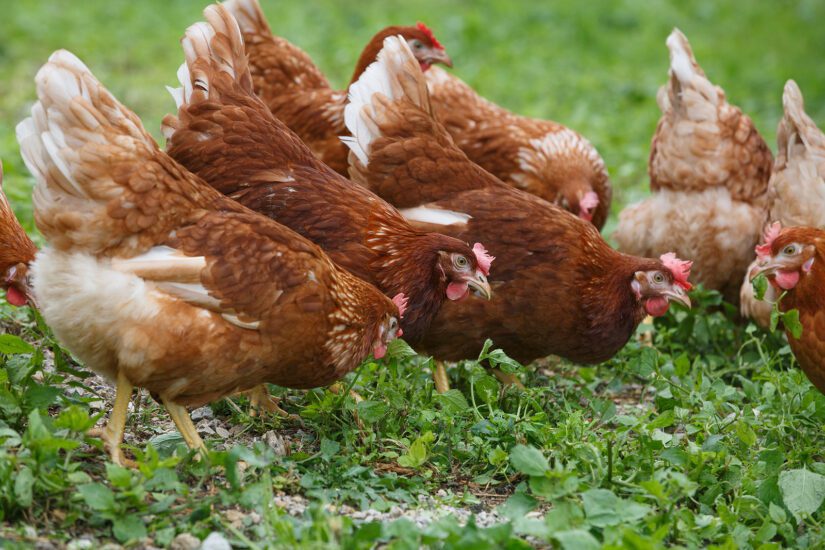
Conventional cage phase-out
In 2022, 44.8% of eggs produced in B.C. came from laying hens raised in conventional cages. Hens are restricted from engaging in many natural behaviours due to limited space and enrichments. As a result, conventional cages have begun to be phased out in Canada.
In 2017, the Code of Practice for the Care and Handling of Laying Hens was updated and requires that conventional cages in Canada be phased out by 2036. By the phase-out date, all hens must be housed in enriched or non-cage housing systems (free-run, free-range, organic).
Enriched cages will be the new standard for your least expensive grocery store eggs after conventional cages are phased out. While enriched cages are an improvement over conventional cages, they do not fully meet the needs of laying hens.
Consumer demand and scientific research drove the decision to transition away from conventional cages. Transitioning from conventional cages to a different type of housing is a complex process for farmers, as older barns may need to be redesigned or entirely replaced. More land may also need to be acquired as the other housing systems take up more space. These modifications take time, which is why the transition has a target completion date of 2036.
Progress
Since the announcement to phase out conventional cages, the number of eggs produced by hens in conventional cages has fallen from 68.5% (2019) to 44.8% (2022). Unfortunately, most conventional cage farms are installing enriched cages rather than going cage-free. So, 71.8% of B.C.’s eggs come from hens still raised in cages.
Consumer demand helps inform what type of eggs farmers produce. As demand for cage-free eggs increases, more and more farms will switch to this type of housing for their hens.
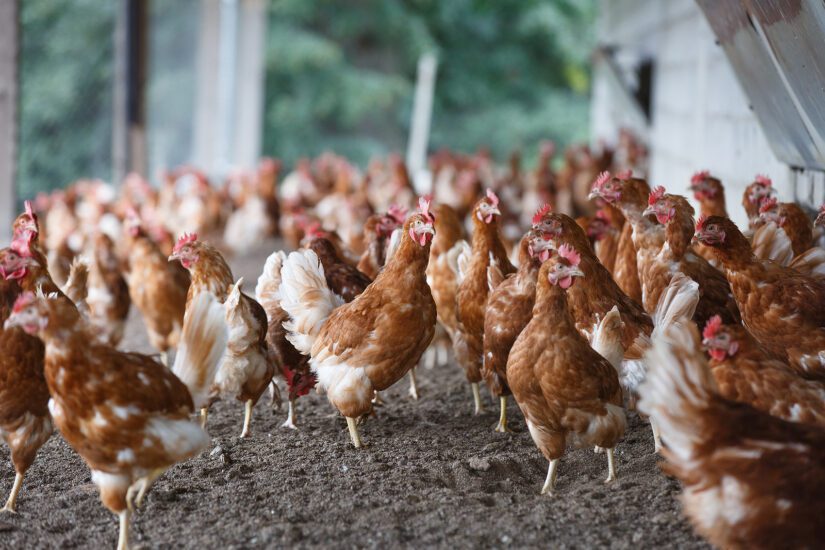
Thank you for doing your part to create a better life for laying hens! Download our egg guide to learn more.
Subscribe to FarmSense
Are you passionate about farmed animal welfare? FarmSense is delivered four times a year and includes news about farmed animal welfare, and updates on what we are doing to help improve the lives of farmed animals. Subscribe now!
